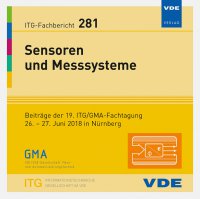Development of an Arduino-based temperature regulation for a miniaturized cultivation system
Conference: Sensoren und Messsysteme - 19. ITG/GMA-Fachtagung
06/26/2018 - 06/27/2018 at Nürnberg, Deutschland
Proceedings: Sensoren und Messsysteme
Pages: 3Language: englishTyp: PDF
Personal VDE Members are entitled to a 10% discount on this title
Authors:
Schlegel, Volker (University of Applied Sciences Wildau, Wildau, Germany)
Abstract:
Over the last decades the understanding and benefits of an individualized medicine have led to novel approaches regarding therapeutic treatment. Consequently, this includes the development and application of new as well as specified pharmaceuticals. In order to prevent unnecessary animal testing, modern technology focusses on utilizing techniques from the field of tissue engineering. Beside other existing strategies, the usage of micro bio reactors is hereby widely distributed. These combine the benefits of conventional bio reactors with cost-efficient parallel processing of small sample volumes with a drastically reduced space-consumption. Usually, single part micro bio reactors are produced via micro injection moulding and joined through bonding. However, optimal growth conditions inside the micro bio reactor are needed for successful cultivation. In order to reach those conditions, a regulation system needs to be implemented. The presented work is focused on the development of a regulation system as well as the cultivation chamber itself. In the presented approach, the cultivation chamber is implemented using rapid prototyping technologies, while the regulation system consists of an Arduino UNO, temperature sensors and a heating element. At first, a set of experiments was performed utilizing medium to verify the temperature inside the cultivation chamber. Thereby, the stability, the time to achieve a previous set threshold and the average of the temperature were of most interest. Following, the obtained exper-imental results were used to further adapt the regulation system to the chamber. A final set of experiments was performed using HeLa cells as biological model specimen to simulate a cultivation of cells inside the micro bio reactors. These experiments provide promising results by achieving a successful cultivation with a higher efficiency and lower costs in comparison to common approaches. Further work is looking forward to improve the warm-up time as well as the control of the atmosphere composition inside the chamber.


